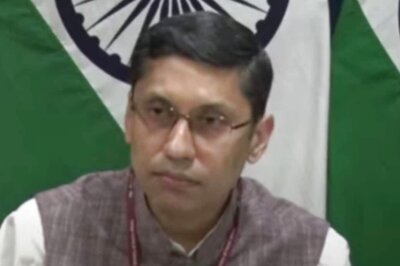
views
Geneva: Tuberculosis (TB) is still a major cause of death worldwide, killing 1.6 million people in 2005, but the global epidemic is on the threshold of decline, the World Health Organisation (WHO) said on Thursday.
"TB prevalence and death rates have probably been falling globally for several years. In 2005, the TB incidence rate was stable or in decline in all six WHO regions," the WHO said in its 2007 Global Tuberculosis Control Report.
Should a sustained downward trend in the TB epidemic develop, it is likely that the Millennium Development Goal of achieving a decrease in the number of TB cases per year will be satisfied years in advance of the 2015 target, the WHO said.
However, the report, released ahead of the World TB Day on March 24, warned that the total number of new TB cases was still rising slowly, mainly due to the expansion of world population.
In 2005, there were an estimated 8.8 million new TB cases, with 7.4 million of them in Asia and sub-Saharan Africa.
A total of 1.6 million people died of the disease, which is caused by a bacterium and can be passed on through sneezing, coughing, talking, spitting, etc.
Although the TB burden may be falling globally, the decline is not fast enough to meet the targets in the Global Plan to Stop TB: to halve the 1990 prevalence and death rates by 2015, the WHO said.
The Stop TB Partnership launched the Global Plan in Jan 2006. The WHO report found that the Americas, South-East Asia and Western Pacific regions are on track to reach the targets set in the plan, while African, Eastern Mediterranean and European regions are not.
Despite signs that the epidemic may be slowing down, there are major impediments to rapid progress against TB - prominent among them is the uneven access to diagnosis and treatment within countries, the WHO said.
Another barrier to progress is the prevalence of HIV/AIDS, particularly in sub-Saharan Africa, where HIV/AIDS is dramatically fuelling the TB epidemic.
Besides, the spread of extensively drug-resistant TB, the overall funding gap and the lack of infrastructure and capacity to fight the disease are also hindering world efforts to control TB.



















Comments
0 comment